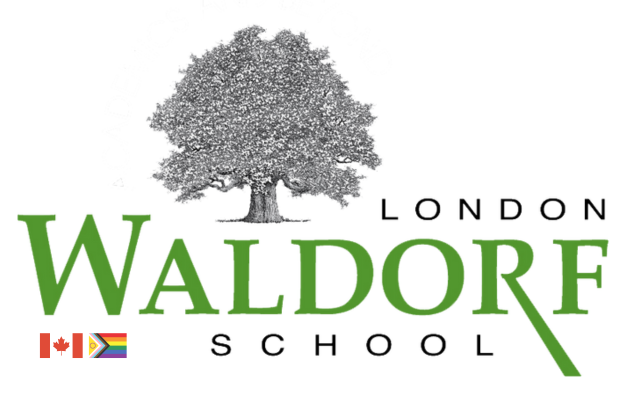This year the faculty embarked on a journey deeper into the questions of the capacities that students need to succeed in the social and the academic realms of schooling. It has been a regular practice at the Thursday faculty meetings to discuss ways to approach struggling students. More often than not the reasons behind lagging skills or behavioural issues are lacking capacities. Rudolf Steiner was ahead of his time when he stated that all parts of our being– mind, spirit, emotion and physical self— are involved in learning. Because these parts are integrated within us they are present in all that we do, including learning. Boyes-Watson and Pranis in their book Circle Forward: Building Restorative School Communities (2020) write, “Our physical state affects how we think and feel; how we think and feel affects us physically; our sense of purpose and meaning– the spiritual side of human beings–influences feelings and thoughts; and how we feel about others and ourselves affects memory, cognition, and perception.”
An important part of our curriculum is largely invisible and focused on the social realm: building human connections where the members are seen and recognized and can freely grow and develop into authentic human beings. Well, we strive. In the classroom, among peers, between teachers and students and among colleagues, and parents we consciously work on human relationships. We develop character traits like optimism, grit and compassion in our environment in dynamically evolving relationships. Boyes-Watson and Pranis (2020) explain that these traits are not inborn but can be nurtured and developed through relationships within families, classes, and communities.
The topic of our interest this fall during faculty meetings was “quality” relationships within our school setting.
We practiced and explored the theories behind restorative circles and observed the potential benefits of these practices in fostering a positive school climate. Teachers left with many practical takeaways that many of us tried in our classrooms.
As part of our mandated work for our upcoming accreditation, we are reviewing the AWSNA Principles for Waldorf Schools. These principles articulate the most important values that inform the policies and practices of Waldorf schools in North America and are held as a central tenet of our schools’ accreditation process.
The very first one of these principles states:
“The image of the human being as a spiritual being informs every aspect of the school. Waldorf schools work actively with insights from Rudolf Steiner about the incarnating human being. One core insight is that the human being is a threefold being of body, soul, and spirit. Waldorf education enlivens the physical, emotional, intellectual, social, artistic, and spiritual capacities of the human being as the individual moves through the phases of this life.”
As a faculty, we spent time discussing what Steiner meant by the word “spirit” since the colloquial use of the word is vague and the term “spiritual” is widely used as well. The main interest for us teachers was to clarify what it means to address the children as spiritual beings. It was comforting and reassuring to read Waldorf educator and author, Stephen Sagarin’s thoughts on this:
“To the extent that we find meaning in these concepts of spirit as teachers and parents, we may address our children healthfully. Do we wish our students’ minds to perceive and think clearly, accurately, and without bias? Do we wish their consciousness to be awake to beauty, truth and goodness? Do we wish for them to be mentally mobile enough to form clear concepts based on accurate, unbiased observation? Can we address these capacities through the education that we create for them? If we can answer these questions in the affirmative, then we are, at least on an introductory level, addressing them as spiritual beings, in Steiner’s terms.”
In the last two weeks, we opened our doors to the pre-service teachers from Steiner College in Toronto. Our curriculum experts and class teachers offered sessions of demonstration, theory and real-life practice to these student teachers. It was humbling to hear the feedback from them as they expressed their gratitude for the deep insights into what it takes to consistently care for the students with love, joy and creativity.
By Reka Borbely, Manager of Curriculum & Pedagogy.

